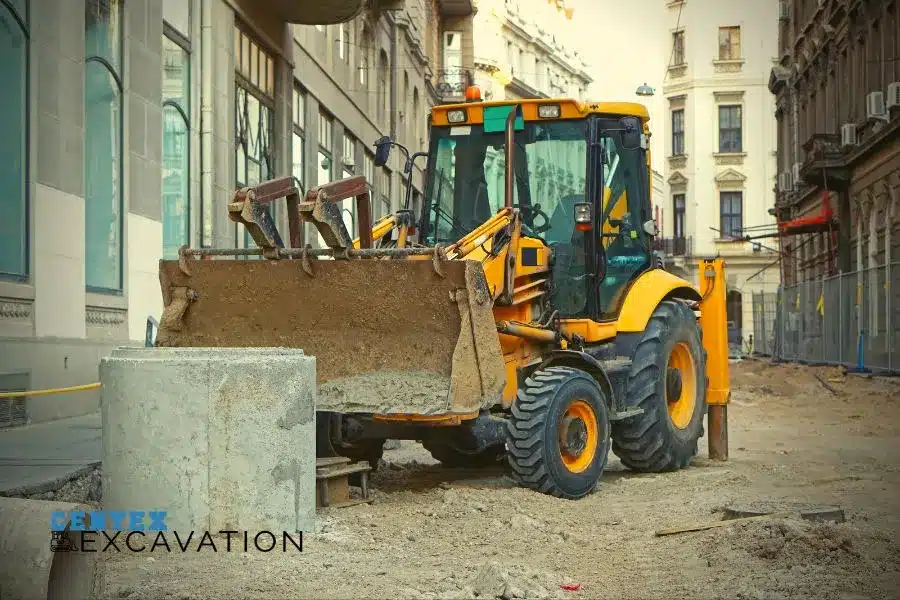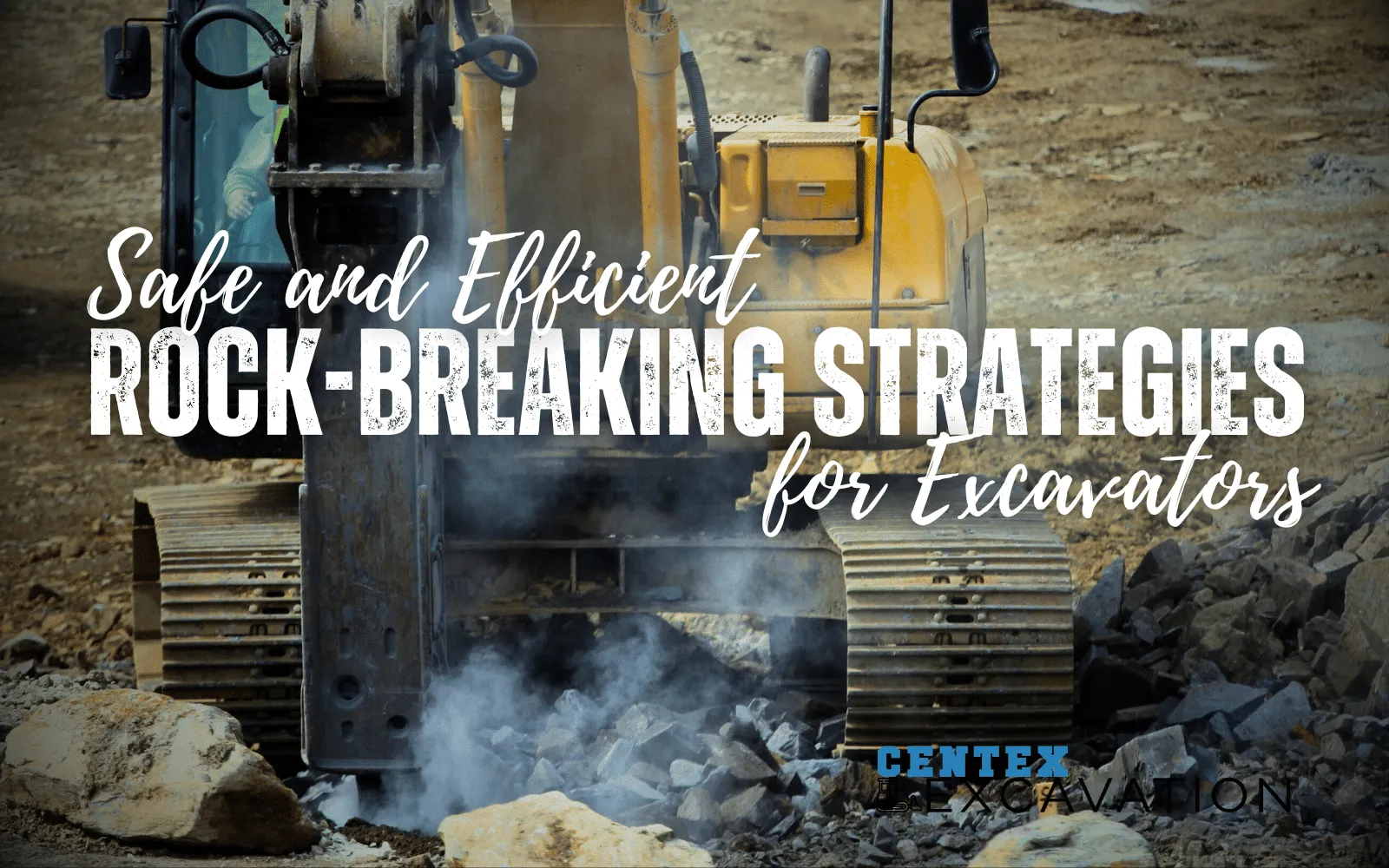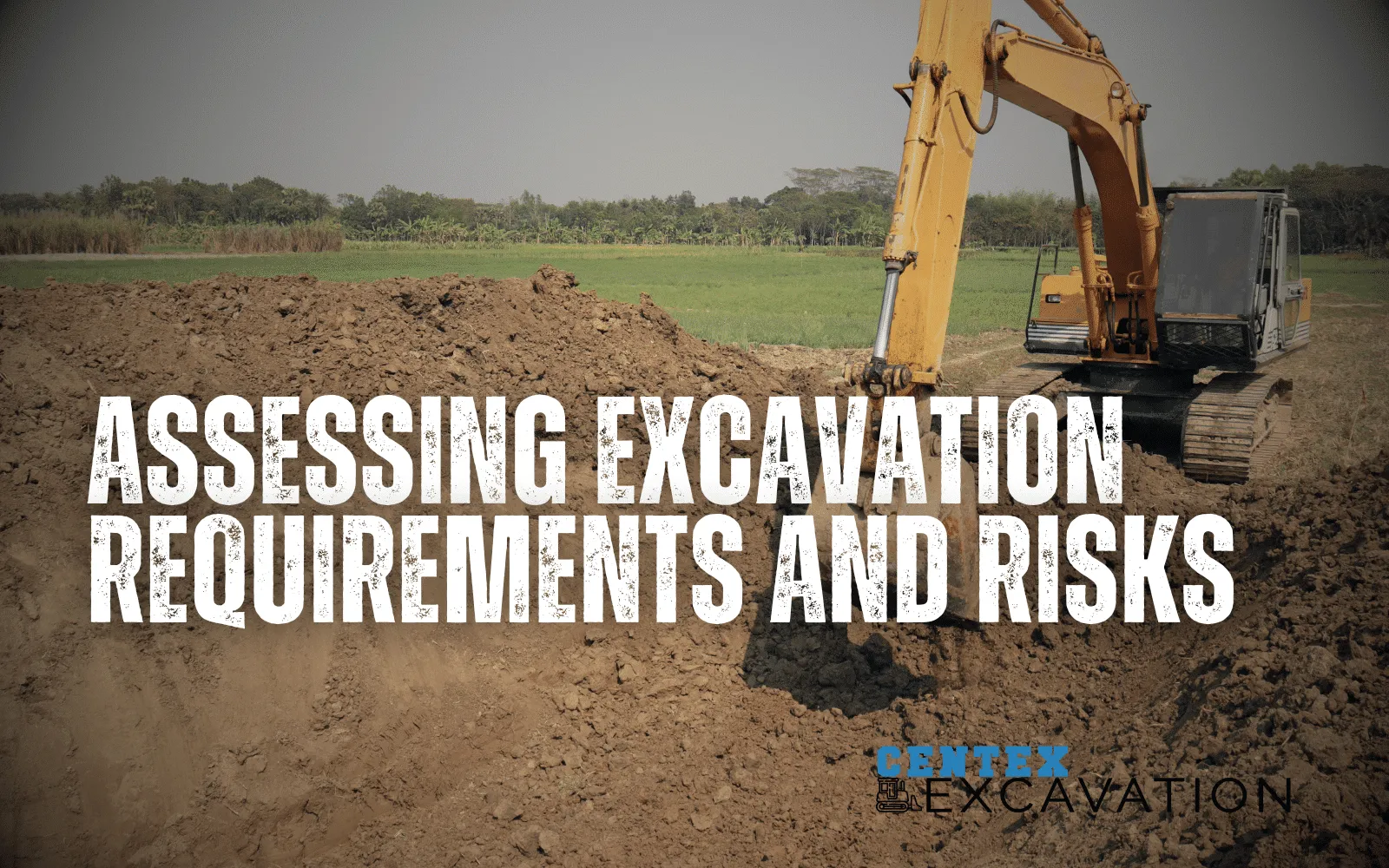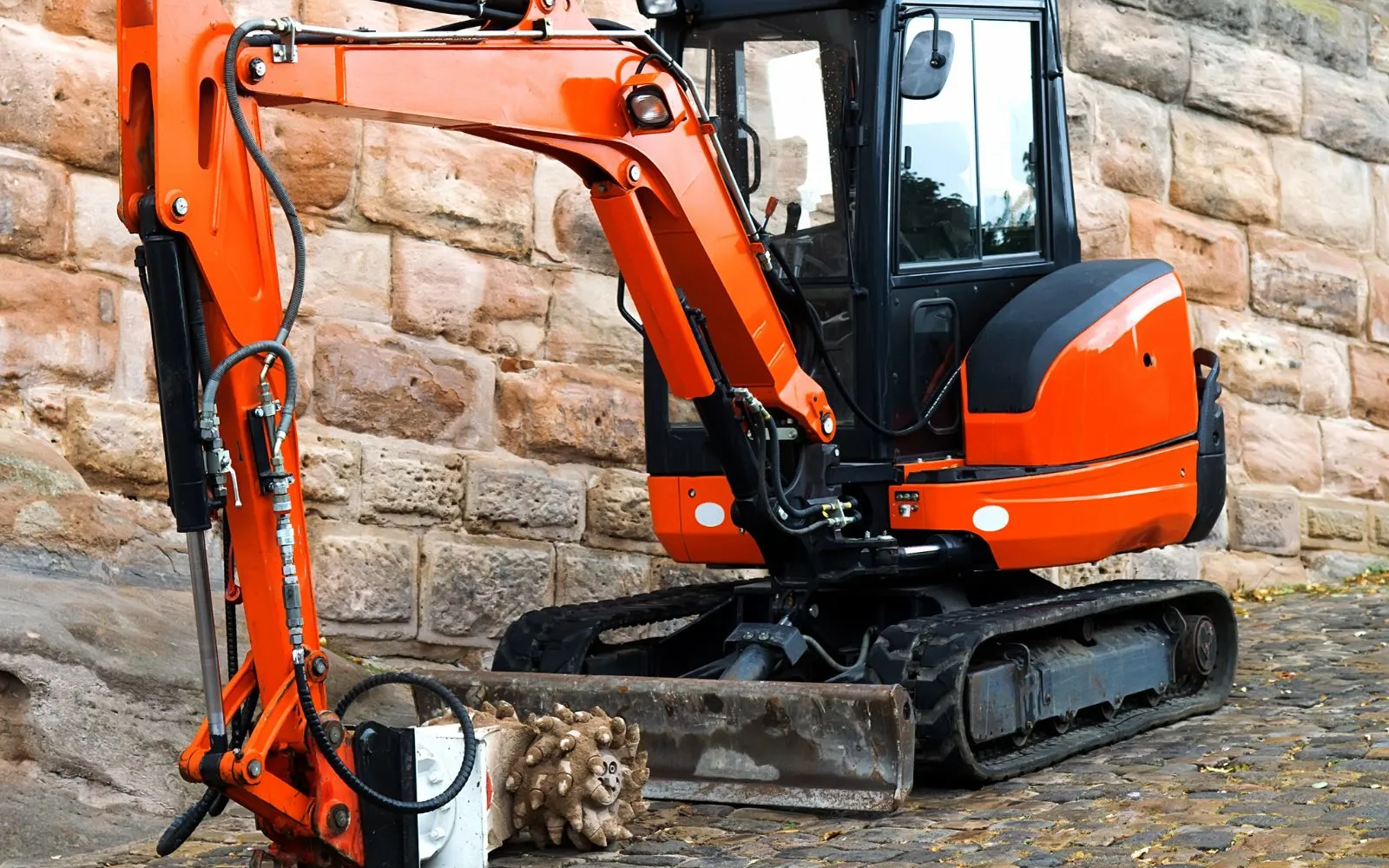From Dirt To Dollars: How To Start A Dirt Work Business

- Comprehensive Planning and Market Research: Before starting a dirt work business, it's crucial to understand the industry and identify your niche. This involves researching the market, understanding the competition, and developing a detailed business plan that outlines your services, target market, and financial projections.
- Building a Skilled Team and Investing in Equipment: Success in the dirt work industry heavily relies on having a skilled team and the right equipment. Hiring, training, and effectively managing your crew are essential steps. Additionally, deciding whether to buy or rent heavy machinery like excavators, bulldozers, and graders is a critical decision that impacts your business's efficiency and profitability.
- Growth Strategies and Online Presence: For scaling up your business, consider expanding services, investing in the latest technologies, and networking within the industry. Developing a strong online presence through a professional website and active social media engagement is also vital for attracting new clients and building a reputable brand.
Are you looking to start a dirt work business but don't know where to begin? Do you have a passion for construction but are unsure how to transform it into a lucrative business? Don't worry, we've got you covered.
We'll walk you through everything you need to know about starting, growing, and succeeding in the dirt work industry. Dirt work involves excavating, grading, and shaping soil to prepare land for construction projects. It is a crucial aspect of the construction industry since it lays the foundation for buildings and infrastructure.
From leveling a construction site to creating the perfect slope for drainage, dirt work is an integral part of any successful building project. A skilled dirt work professional is in high demand, and it is an excellent business opportunity for anyone with a passion for construction and machinery.
Understanding the dirt work industry: what it is and why it matters.
When it comes to construction projects, excavation plays a vital role. This process involves removing, relocating, and returning the soil to its natural space to create a flat surface. From digging trenches to building roads or grading land, dirt work is the backbone of modern construction. It is an indispensable part of any construction project, and without it, the stability and safety of any project can be compromised.
Dirt work creates foundations for new buildings, lays parking lots, installs drainage systems, or even constructs new highways. As such, it is an essential aspect of the construction industry. As an entrepreneur, establishing a dirt work company can be profitable by providing quality excavation services. Your efforts can help contractors and developers complete their projects safely, efficiently, and with quality.
You can perform several dirt work projects, such as demolishing a structure, removing rock or other materials through blasting, constructing a foundation for a new building, installing drainage systems, or constructing a new road. Excavation companies play a critical role in construction projects, and by establishing a dirt work company, you can become a valuable partner in the industry.
Starting your dirt work business: a step-by-step guide.
Starting a dirt work business can be an overwhelming experience; trust me, I know. There are countless details to consider and many steps to take. However, don't be discouraged! After going through the process, I will share my step-by-step guide.
- Choosing a Specialization: Determine your focus within the dirt work industry, such as excavation, grading, demolition, or hauling. Specializing helps you excel and stand out.
- Market Research: Investigate competitors to understand their offerings. Identify unique value propositions for your business to differentiate it in the market.
- Developing a Business Plan: Create a comprehensive plan outlining your goals, strategies, and actionable steps. This serves as a roadmap for your business journey.
- Legal Formalities: Register your business with the state, obtain necessary permits and licenses, and ensure all legal requirements are met before starting operations.
- Embracing the Process: Acknowledge the challenges of starting a dirt work business. Stay focused, and remember that all successful ventures begin with uncertainty but grow with persistence and effort.
Don't let the daunting nature of starting a dirt work business get you down. Remember that every successful business starts with the same unsure feeling. Take it one step at a time and keep pushing; you'll be amazed by what you can achieve.
Developing a business plan for your dirt work venture.
As an aspiring dirt work business owner, you want to be successful, right? Of course, you do! And to achieve that success, you need a solid business plan. It's just like any other business venture but with a twist. You must outline your specific services, target market, and financial projections.
So, the first thing you need to do is identify your niche in the dirt work industry. Excavation, grading, site preparation, landscaping, or demolition - there are plenty of areas to specialize in. But you need the experience and expertise to provide top-notch work. Find your forte!
Next, determine your target market. Who needs the services you provide? Is it residential or commercial clients in your area? Analyze your local competition and identify opportunities to fill gaps in the market.
A pro tip for checking out your competitors is by taking a look at their Facebook ads. Who are they targeting? What are they providing? You can learn a lot from their ads.
Now comes the part that many people dread - financial projections. You need to factor in equipment, labor, and materials costs. This includes any overhead expenses like insurance and advertising. Be mindful, strategic, and build in some wiggle room for unexpected expenses. After all, you don't want to be caught off-guard. These don't have to be solid numbers, but should be as accurate as you can get.
Last, seek advice from others who have succeeded in the industry. Connect with local business owners in your field and seek their guidance. Attend industry conferences and seminars to network and learn about the latest trends and technologies.
Remember, your business plan is the road map to your success. Take the time to develop it fully and refine it over time. But never forget, it's your business, and you got this!
Identifying your market: finding work and clients for your business.
The first step is to identify your market to find work and clients for your dirt work business. One effective way is to conduct a thorough market analysis to determine the level of demand for your services in your area. Keep an eye on emerging trends and tailor your offerings accordingly. But where do you start?
To begin with, consider the demographics of your area and the potential clients. Do you have a lot of residential or commercial properties needing land clearing, grading, or excavation? Or perhaps you have farms or ranches that require regular soil maintenance and erosion prevention services. Identifying your potential clients is crucial to creating a niche for your business.
Don't hesitate to contact your area's contractors, architects, builders, and landscapers. Ask for referrals and collaborate on projects when feasible. Establishing partnerships and relationships with other businesses in your community can help you gain exposure and create a reliable workflow. Working together can open new doors to opportunities you may not have had access to.
Finally, online marketing can be a powerful tool for promoting your business. Invest in creating a professional website with a portfolio of your work and showcase your services on social media pages. Engage with potential clients to build an online reputation by answering comments and sharing pictures and updates. Offering timely promotions or seasonal discounts can attract new customers and help you stand out.
Identifying your market and carving out a niche for your dirt work business can help you create a strong foundation and attract a steady flow of clients and opportunities. Remember to stay adaptable as you adjust your approach to meet the specific needs of your clients.
Building a winning team: hiring, training, and managing your crew.

The key to success in the dirt work industry is having a solid team of skilled and dedicated workers. Building this dream team requires attention to three vital areas- hiring, training, and managing. First, to hire the right people, you must clearly understand the skills and qualifications necessary for the job.
To ensure a diverse pool of applicants, recruit from various sources like job boards, industry associations, and social media. During the interview stage, ask open-ended questions, assess their team-working abilities and ability to handle stress, and adapt to changing job requirements.
Next, invest in your team's development by providing thorough training such as on-the-job instruction, classes, and workshops. Boost trust and camaraderie by assigning tasks based on individual strengths. As the team leader, set clear expectations, provide ongoing feedback, and recognize good work. Take the extra step to build up employee morale by organizing team-building exercises or a company barbecue.
By effectively hiring, training, and managing your team, you can develop a winning crew capable of tackling any project. Creating a culture of collaboration and continuous improvement leads to happier employees, outstanding work, and a more profitable business in the long run.
Tools of the trade: investing in equipment and supplies.

Investing in the right tools is paramount to the success of any dirt work business. And it's not just any tool, but tools that are up to the task, like excavators, bulldozers, graders, and backhoes. These monsters of machinery are a vital cog in the machinery of the business, as they make the work more efficient.
However, the question is, should you buy or rent? It's a dilemma that every owner of a dirt work business has had to face at one point or another. If your project is short-term, renting may be the better option. But, owning your equipment is the way to go when it comes to taking on bigger and more long-term work, as it will be more cost-effective in the long run.
Aside from heavy machinery, your supplies are essential as well. So, it's important to consider purchasing them in bulk as it can save you money in the long term. And this can range from fuel for your machines to safety equipment for your crew.
As does your equipment and supply needs, growing your business is a never-ending process. So, regular assessment of your needs is essential so that you are always prepared to handle even bigger and more complex projects in the future.
Investing in the right equipment and supplies can make or break a dirt work business, but it's also important to keep up with the industry's ever-changing demands. By making informed decisions and keeping up with the need of the industry, your business can thrive for years to come.
Tips for growing your dirt work business: scaling up, diversifying, and thriving in the industry.
After successfully launching your dirt work business, it's time to take it to the next level! Here are some tips to help you grow, diversify, and thrive.
- Expand your services. Offering additional services to your clients can lead to more revenue streams. Consider providing drainage solutions, excavation services, or snow removal during winter. Adaptability to industry customer needs can set you apart from competitors.
- Invest in the latest technologies. Technology is always advancing, and your competitors may have new gadgets that offer more efficient work processes. Research, invest, and implement these new technologies. For example, telematics technology can track your equipment fleet and offer performance analytics to help you improve fuel consumption, reduce idle time, and optimize routing. Being up to date with the latest technologies will save costs and increase productivity.
- Network and collaborate. Attend industry conferences, seminars, and trade shows to meet people in the dirt work industry. Forming partnerships to offer combined services can help you provide the best overall services in the market. Collaborating with other companies can help you grow your business even further.
- Develop a referral program. Happy clients can be an essential asset to help grow your business further. Consider developing a referral program where your clients can earn discounts or other incentives for referring new business opportunities to your company. This will motivate clients to refer more business opportunities, expanding your client base further.
- Build and maintain your online presence. Having a website and an active social media presence is essential. Your website should contain valuable information about your services, contact information, and reviews or testimonials from past customers. Use social media platforms to communicate about new services, offers and connect with new clients in the industry.
By following these tips and continuously adapting to the changing market, your dirt work business can thrive and remain competitive. Being flexible, innovative, and continuously improving will ensure growth and sustainability in the long run.
Go start your dirt work business!
Starting a dirt work business can be both intimidating and fulfilling. It's a world that requires plenty of hard work, dedication, and skill to grow your business from the ground up. But don't let that intimidate you! With the right planning, team, and equipment, you can create a successful business in the dirt work industry that you can be proud of.
To build a thriving business, patience, determination, and a willingness to learn from mistakes are key. Remember to take your time and always be willing to learn. Don't rush into things, and make sure you have a solid game plan. Spend time identifying your target market, building a team, and investing in high-quality equipment.
To be successful, it's important to seek advice from other business owners or industry experts. Don't be afraid to take advice from other successful entrepreneurs. Gain knowledge about their successful business strategy and adapt it to your approach. Always strive for excellence in every aspect of your work and constantly work to improve.
There's nothing more rewarding than pursuing your dream of starting a dirt work business. So, take these tips and go after your passion! We wish you the best of luck and success in your new venture.









